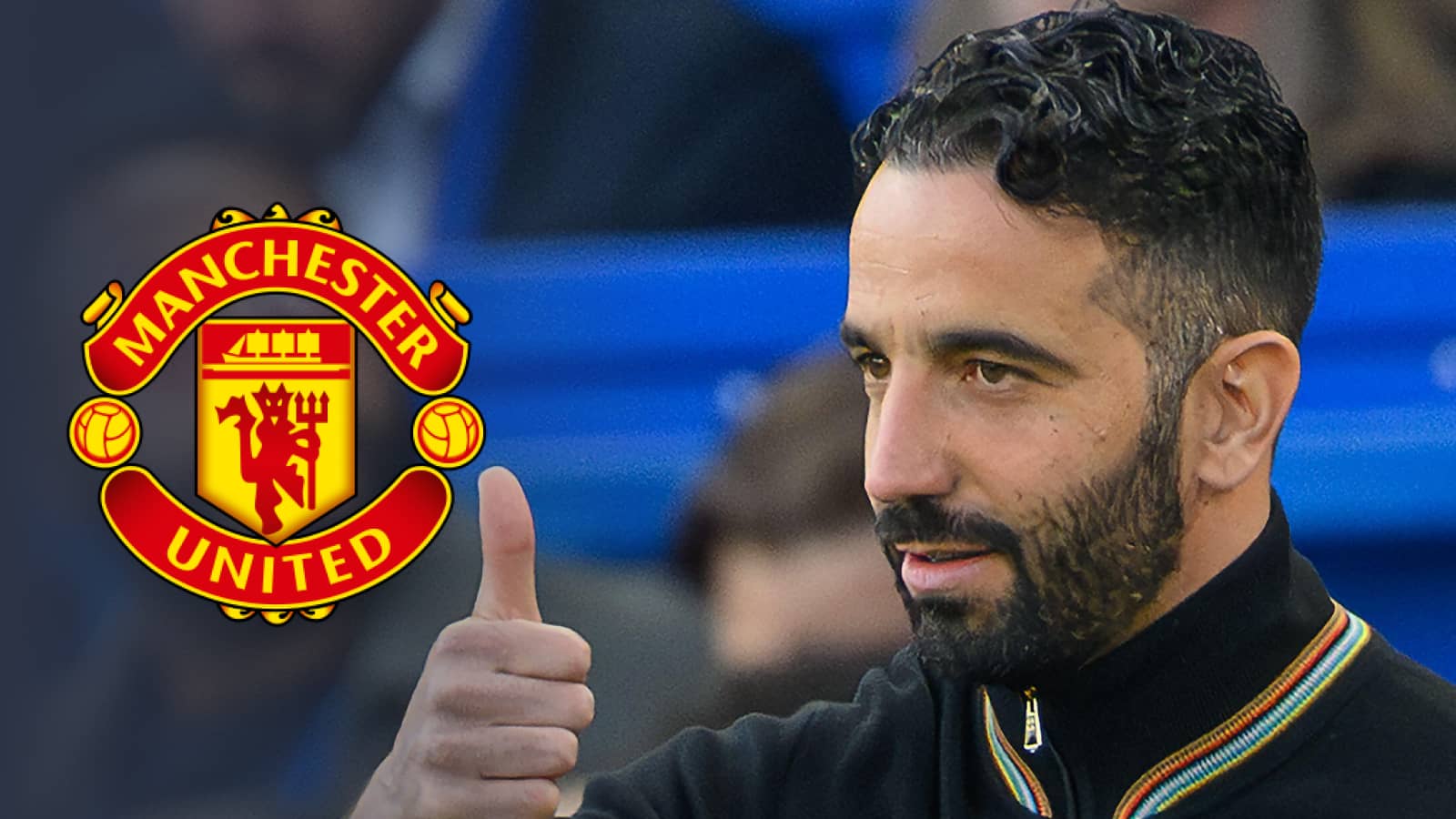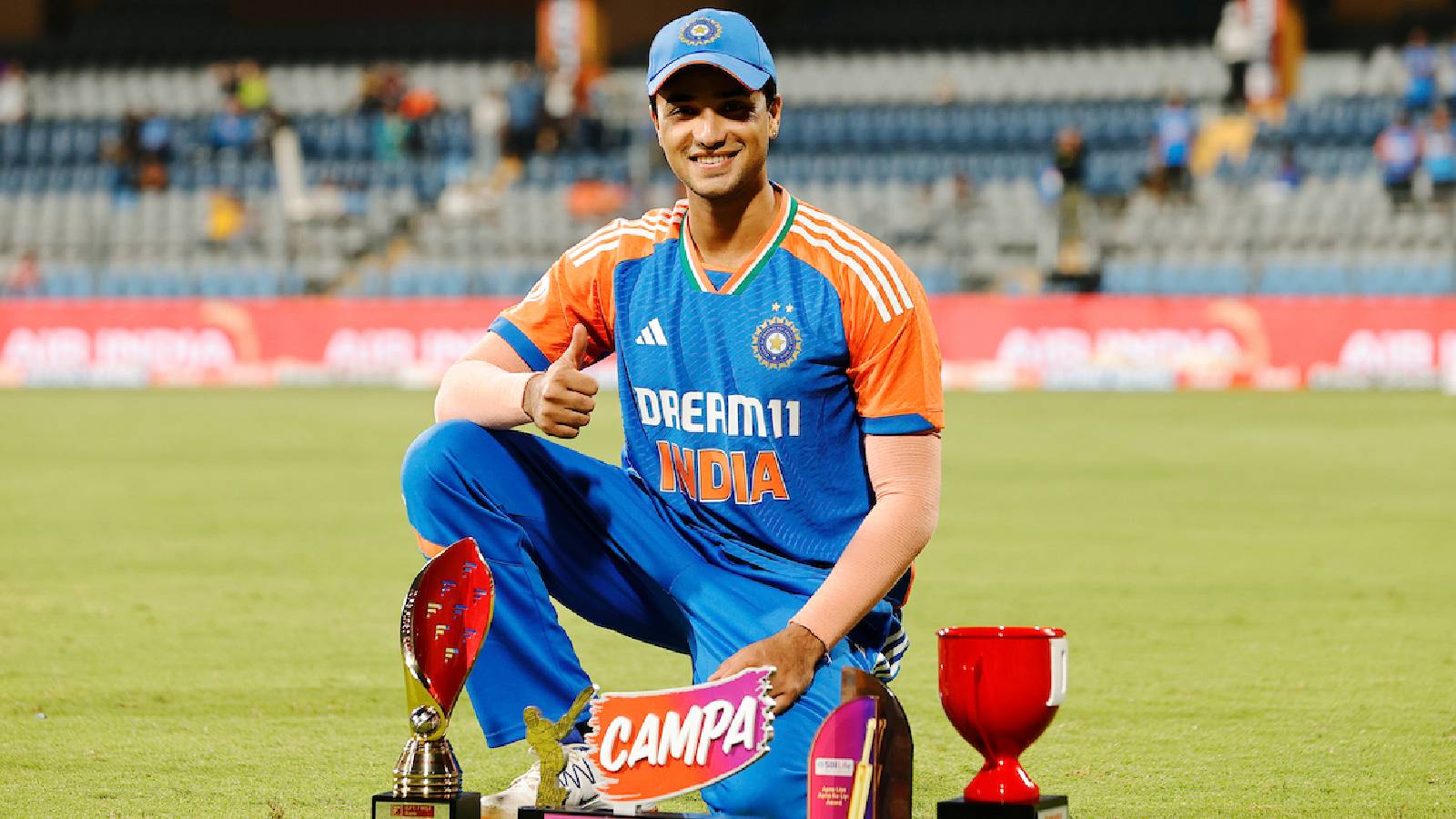Win or Learn: The Rise of Game-Changer Aitana Bonmatí

Win or learn. You never lose, reads the mural in Sant Pere de Ribes, Spain, a town of 30,000 inhabitants 25 miles from Barcelona. The image depicts local hero Aitana Bonmatí Conca, clutching a Ballon d’Or trophy in one arm and embracing a younger version of herself with the other.The journey of the world’s best women’s player began here, just 670 miles from the site of what Bonmatí hopes will be her next career triumph. After winning nearly every trophy there is to win, the 27-year-old has her sights set on claiming Spain’s first UEFA women’s Euro title in Switzerland. (Bonmatí rejoined the Spanish team after being hospitalized with viral meningitis one week before the start of the tournament.)It’s been a long and winding road to this point for Bonmatí, starting out in that small Spanish town as the only girl playing soccer among the boys. “My first memory is playing soccer in the schoolyard of Escola El Pi,” Bonmatí says. “Times have changed a lot in recent years. When I was young, I didn’t have the chance to look into the future and see [female] role models to aspire to.”Florencia Tan Jun for Sports IllustratedAitana Bonmatí grew up in a household where giving up was never an option, where speaking up for your values was simply part of life. When she was born, her parents made the bold decision to reverse the traditional Spanish naming order in favor of gender equality. As a result, she became one of the first people in Spain to carry her mother’s surname as her first name .Equality would continue to guide Bonmatí’s decisions. After being the lone girl on boys’ teams in her hometown, she took the crucial step to join Barcelona’s female academy—Barcelona Femení Academy—when she was 14. Jumping at the chance to wear the same colors as her idols, Andrés Iniesta and Xavi, the players she watched avidly on TV every weekend in the village bar. To play for the club that runs through everyone’s veins in that part of Spain.The opportunity had come with a twist, however. Barcelona didn’t have a fully professional women’s team at that time. Playing at the Camp Nou was still only a boys’ dream back then. And Bonmatí’s goal was clear: she wanted to become a pro. She and her family had briefly considered a move to the University of Oregon in the United States, where women’s soccer was already an established and respected reality. But in the end, she opted for Barcelona.And three years later, in summer 2015, her decision looked like the right one. Barcelona’s board rewrote the future of European women’s soccer as their women’s team turned professional and Bonmatí—who earned her place in the first squad one year later—could finally forge her path, becoming the idol and role model she never had.“I think that women’s football has grown a lot [in Spain] in the last six or seven years,” Bonmatí says. “I think Barça has played a fundamental role because since we won the Champions League and since they have bet on us, we have been the most recognized team in Europe and the world.”The numbers tell the story: Six league titles (Liga F), three UEFA Women’s Champions League titles (appearing in six of the past seven finals), seven national cups (Copa de la Reina) and five Spanish Super Cups catapulted Barcelona Femení into the most famous club in the world.“It’s a privilege to have become a role model for so many girls and boys,” Bonmatí says. “Today I can see many people wearing my jersey in Barcelona or around the world and this is something unique that was impossible to imagine just a few years ago.”The growing popularity of women’s soccer is there for all to see. Twice in less than a month in 2022, Barcelona broke the world record attendance for a women’s soccer match as more than 91,000 fans packed into Camp Nou for two crucial Champions League matches—an accomplishment more wide-reaching than winning trophies.“What we have generated at the social level in Barcelona, filling the Camp Nou every now and then, and having a lot of fans at the Estadi Johan Cruyff [the women’s team’s home stadium] every week,” Bonmatí says. “I believe it’s almost impossible for any other team.”Aitana Bonmatí has played 321 matches for Barcelona, scoring 112 goals. | Getty ImagesThis hugely successful Barcelona team also served as the backbone of Spain’s historic first World Cup triumph in 2023, with Bonmatí awarded the Golden Ball trophy as the player of the tournament. A midfield maestro, Bonmatí dictates the rhythm of the game when in possession, while directing her teammates with a distinctive arm gesture when off the ball.“My dad says that I look like a policewoman directing the traffic, because I spend a lot of time directing the game with my arms,” Bonmatí says. “I believe this is part of my game and of my leadership, of how I see football. I constantly scan the game and what is happening on the pitch, I evaluate all the possibilities and try to find the best solution.”The girl who once dreamed of her spot in the local team is now one of the greatest in the game. Just like her idol Iniesta had 13 years previously, she wore the No. 6 jersey for a World Cup-winning Spain team. And whereas in 2010 the chant was “Campeones del Mundo,” the masculine form of champions, this time, it was: “Campeonas del Mundo,” the feminine form.“As a soccer player, the best that can happen to you is winning the Champions League with your club and the World Cup with your national team. It was an unforgettable day,” Bonmatí says. “We played in Sydney, and I don’t even know how many miles from home we were. In a full stadium, after a month and half of training and a month of tournament. These feelings are really hard to describe, you need to feel them.”Spain’s World Cup success is particularly remarkable when you consider the atmosphere in the lead up to the tournament. A few months before the Spanish squad flew out to New Zealand, Bonmatí was part of a group of 15 players to declare themselves unavailable for selection . They stated that head coach, Jorge Vilda, was negatively affecting their health and emotional wellbeing and they would not return until a solution was found.Driven by the desire to represent their country in the most important tournament, Bonmatí and seven other players later declared themselves eligible. Against all odds, somehow the team came together to reach a common goal, showing the whole world what they can do—an outcome even Bonmatí didn’t anticipate.“It was a surprise for us and for everyone. We faced a complicated season and we weren’t so close as a team for everything that happened in the previous year. Many times we say that together we are stronger, and in theory it’s true, but it wasn’t the case for our squad competing in the World Cup,” she says. “The year leading [up] to the tournament was tough, and we managed to succeed because everyone, individually, showed the best version of ourselves. It was a combination of talent and the best version of each one of us, and then the stars were aligned.”What followed has been well documented, as the celebrations were overshadowed by the then-president of the Spanish Football Federation, Luis Rubiales, kissing Spain forward Jennifer Hermoso without her consent.“Unfortunately we haven’t been able to truly enjoy this achievement because of everything that happened,” Bonmatí says. “So I hope the future will bring us better celebrations than the one we had, because moments like these should be enjoyed not just that day, but every day that follows—and sadly, we weren’t able to celebrate it.”Under duress, Rubiales resigned and was issued with a three-year ban by FIFA. In their next match against Sweden, their first with a World Cup-winning star on their badge, the team expressed solidarity by raising their fists with Hermoso’s No. 10 inscribed on their wrists and holding a banner that read: #SeAcabó, or “It’s All Over.” Staying silent was never an option.Aitana Bonmatí logged three goals and two assists during the 2023 World Cup, helping her earn the Golden Boot award. | Getty ImagesWinning two FIFA Ballon d’Or awards in the past two years is the ultimate recognition of brilliance on the pitch. But her greatness goes far beyond trophies. Bonmatí has become one of the most influential women’s sports figures of this century.Even during her most triumphant moments—like her last speech at the Théâtre du Châtelet during the FIFA Ballon d’Or ceremony—she remained focused on what truly matters: her team, and the ongoing fight for equality.“I always say I have a responsibility that goes beyond the playing field. I know I have a voice that’s heard and that carries weight. I try to use it to speak up for better conditions or for causes that matter—but the truth is, we need the backing of the institutions that really have the power to make change,” she says. “For me, it’s about belief. When institutions truly believe in what they stand for, when they fight with conviction and consistency, things move forward. But when they act out of obligation, just to tick a box, things rarely go well.”Heavy is the crown that the world’s best player wears, but Bonmatí is well aware, and well placed, to deal with the responsibility she has been given as the global face of women’s soccer. From her campus for boys and girls in her hometown of Sant Pere de Ribes, to her global sponsorship deals, Bonmatí always pays attention to the values that she wants to share through her image.“For me it’s a privilege to have become a role model for so many boys and girls, and I’d like to make an impact on society not only through what I have achieved in football, but also through the values I represent,” she says.The boys and especially girls in her hometown now have a world famous hero they can meet in the streets. Girls around the world now have an idol they can imitate while playing soccer in the schoolyard, dreaming of a full stadium chanting their name.Bonmatí and her generation opened doors that will stay open long after they finish playing, but she acknowledges there is still much to accomplish. “I believe a lot has been left undone. Although we have achieved major milestones, the moment hasn’t been fully capitalized on to create a true impact on society, like what happened in England after they won the Euros in 2022, or what the U.S. has been doing for years.”The 2025 UEFA Women’s European Championships could be such an opportunity for Bonmatí and Spain, looking to make history by bringing home the title for the first time.“It’s one of the few competitions I have yet to win, so trying to lift that trophy is one of my goals,” says Bonmatí.Win or learn, you never lose. Just like the mural reads.









